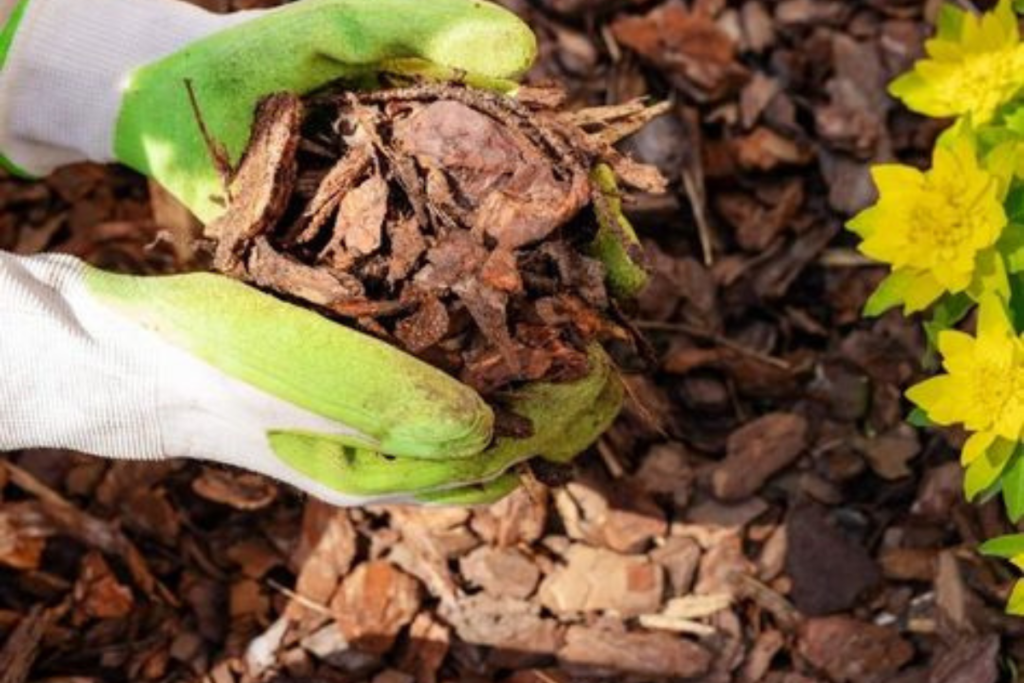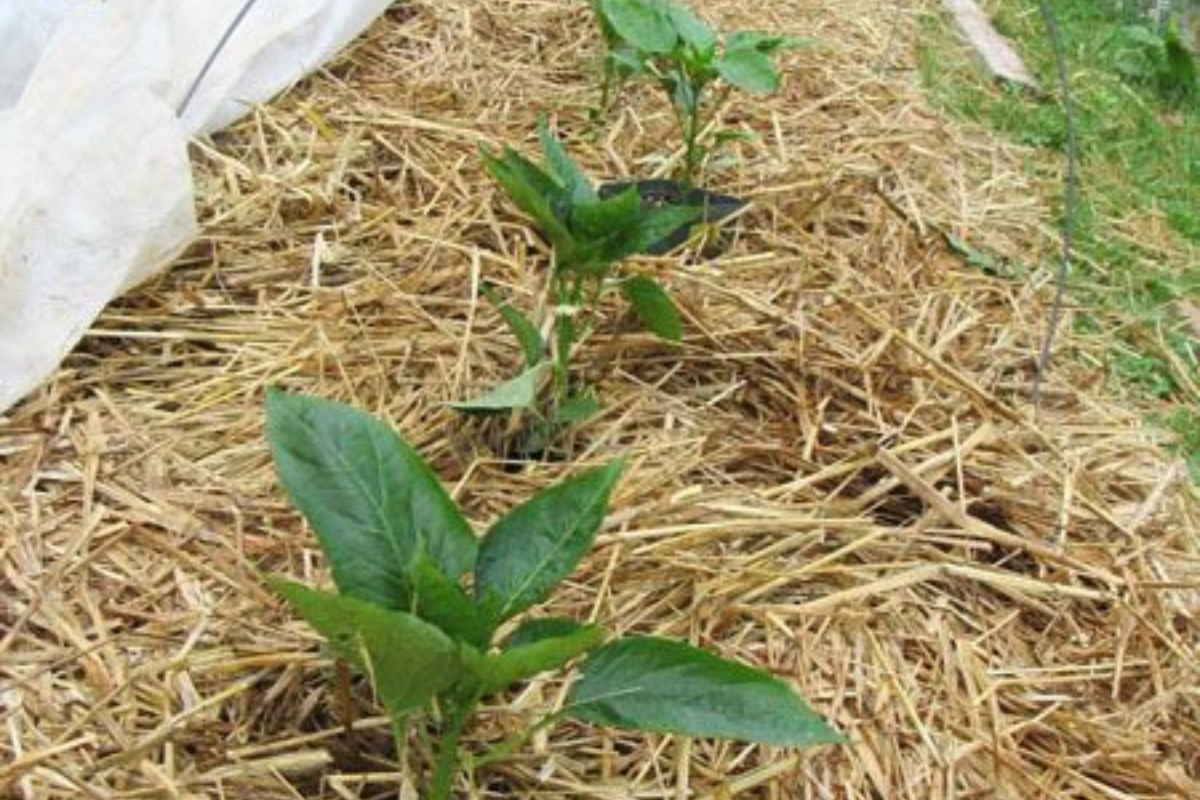Mulching is one of the most beneficial gardening practices that provides a wide range of advantages for both the plants and the soil. By applying a layer of material to the surface of the soil, mulching creates an environment that encourages plant growth, conserves resources, and helps reduce garden maintenance. Whether you are a seasoned gardener or a beginner, mulching is a simple yet powerful way to improve the health and productivity of your garden. Here are some of the key benefits of mulching:

1. Improves Soil Moisture Retention
One of the most significant advantages of mulching is its ability to retain soil moisture. A thick layer of mulch prevents water from evaporating quickly, which means less frequent watering. This is particularly helpful during hot summer months or in regions with dry climates. Mulch helps maintain a consistent level of moisture in the soil, ensuring that plant roots have access to water for longer periods. This, in turn, promotes healthier, more robust plant growth.
2. Reduces Weed Growth
Weeds can compete with your plants for nutrients, water, and sunlight, and they can be a major source of frustration for gardeners. Applying mulch creates a barrier that blocks sunlight, preventing weed seeds from germinating. As a result, mulching significantly reduces the growth of weeds in your garden. This reduces the need for chemical herbicides and minimizes the amount of time and effort spent on manual weeding.
3. Enhances Soil Structure
Mulch helps improve the structure of the soil by promoting the activity of beneficial microorganisms and earthworms. These organisms break down organic mulch into valuable nutrients, which enrich the soil. Over time, this helps improve soil texture, aeration, and drainage. Mulching also helps prevent soil compaction, which can lead to poor root development and water infiltration. As the mulch decomposes, it adds organic matter to the soil, improving its fertility and supporting plant growth.
4. Moderates Soil Temperature
Mulching acts as an insulating layer, helping to regulate soil temperature. During hot weather, mulch keeps the soil cooler by shading it from the sun. Conversely, during colder weather, mulch helps retain warmth in the soil. This is particularly beneficial for plants that are sensitive to extreme temperature fluctuations. Consistent soil temperatures create a more stable environment for plant roots and improve overall plant health.
5. Reduces Soil Erosion
Heavy rainfall can lead to soil erosion, which can wash away valuable topsoil and damage plant roots. Mulch helps protect the soil from the impact of rainfall by reducing water runoff. It also prevents the soil from becoming compacted and maintains its structure. In areas prone to erosion or in garden beds with sloped terrain, mulch acts as a protective layer that helps maintain soil integrity and prevents the loss of nutrients.
6. Enhances Garden Aesthetics
Beyond the practical benefits, mulch can significantly enhance the visual appeal of your garden. Mulch comes in various types and colors, such as wood chips, bark, straw, and compost, allowing you to choose one that complements the design of your garden. A well-mulched garden bed gives the landscape a neat, tidy, and uniform look. Additionally, the use of colored mulch can provide a vibrant contrast to the greenery of plants and flowers.
7. Reduces Soil Compaction
Soil compaction is a common problem that occurs when the soil becomes dense and hard, often due to foot traffic, heavy machinery, or overwatering. Compacted soil restricts root growth, prevents proper water drainage, and makes it difficult for plants to access nutrients. By adding a layer of mulch, you create a cushion that reduces the impact of compaction and allows the soil to remain loose and airy. This promotes better root development and overall plant health.
8. Provides Nutrients
Organic mulches, such as wood chips, straw, grass clippings, and leaves, decompose over time, releasing valuable nutrients into the soil. This process enriches the soil with essential elements like nitrogen, phosphorus, and potassium, which are critical for plant growth. By choosing organic mulch materials, you can effectively recycle garden waste while also providing plants with the nourishment they need to thrive.
9. Helps Protect Plants from Pests
Certain types of mulch, such as cedar or cypress mulch, have natural pest-repelling properties. These mulches can help deter unwanted insects, such as termites, ants, and certain types of beetles, from invading your garden. While mulch alone cannot eliminate pests, it can be an effective part of an integrated pest management plan when used in combination with other methods.
10. Prevents Splashing and Fungal Diseases
Mulch can reduce the amount of soil that splashes onto plant leaves during rainfall or watering, which can help prevent soil-borne diseases like fungal infections. By keeping the soil covered and moist, mulch reduces the chances of harmful fungi from taking hold on your plants. In addition, many types of mulch, such as pine bark or wood chips, have a natural resistance to fungal growth, providing an extra layer of protection for your garden.
11. Supports Sustainable Gardening Practices
Mulching is a sustainable gardening practice that can help reduce the need for chemical fertilizers and pesticides. By improving soil health and encouraging biodiversity, mulch supports organic gardening methods and helps create a more resilient and eco-friendly garden. Additionally, using organic mulches allows you to recycle garden waste and create a closed-loop system, which is beneficial for the environment.
Types of Mulch
There are two main categories of mulch: organic and inorganic. Each type has its own set of benefits and uses:
- Organic Mulch: This type of mulch is made from natural materials such as wood chips, leaves, straw, grass clippings, compost, and bark. It decomposes over time, enriching the soil with organic matter and nutrients.
- Inorganic Mulch: This includes materials such as rubber, landscape fabric, and gravel. While these do not decompose, they still provide benefits like weed suppression and moisture retention.
Conclusion
Mulching is an easy and effective way to improve the health and appearance of your garden. From conserving moisture and controlling weeds to improving soil structure and reducing erosion, the benefits of mulching are numerous. Whether you are growing vegetables, flowers, or shrubs, applying mulch can create a more productive and sustainable garden. By choosing the right type of mulch for your garden and applying it correctly, you can enjoy a flourishing and low-maintenance landscape year-round.
